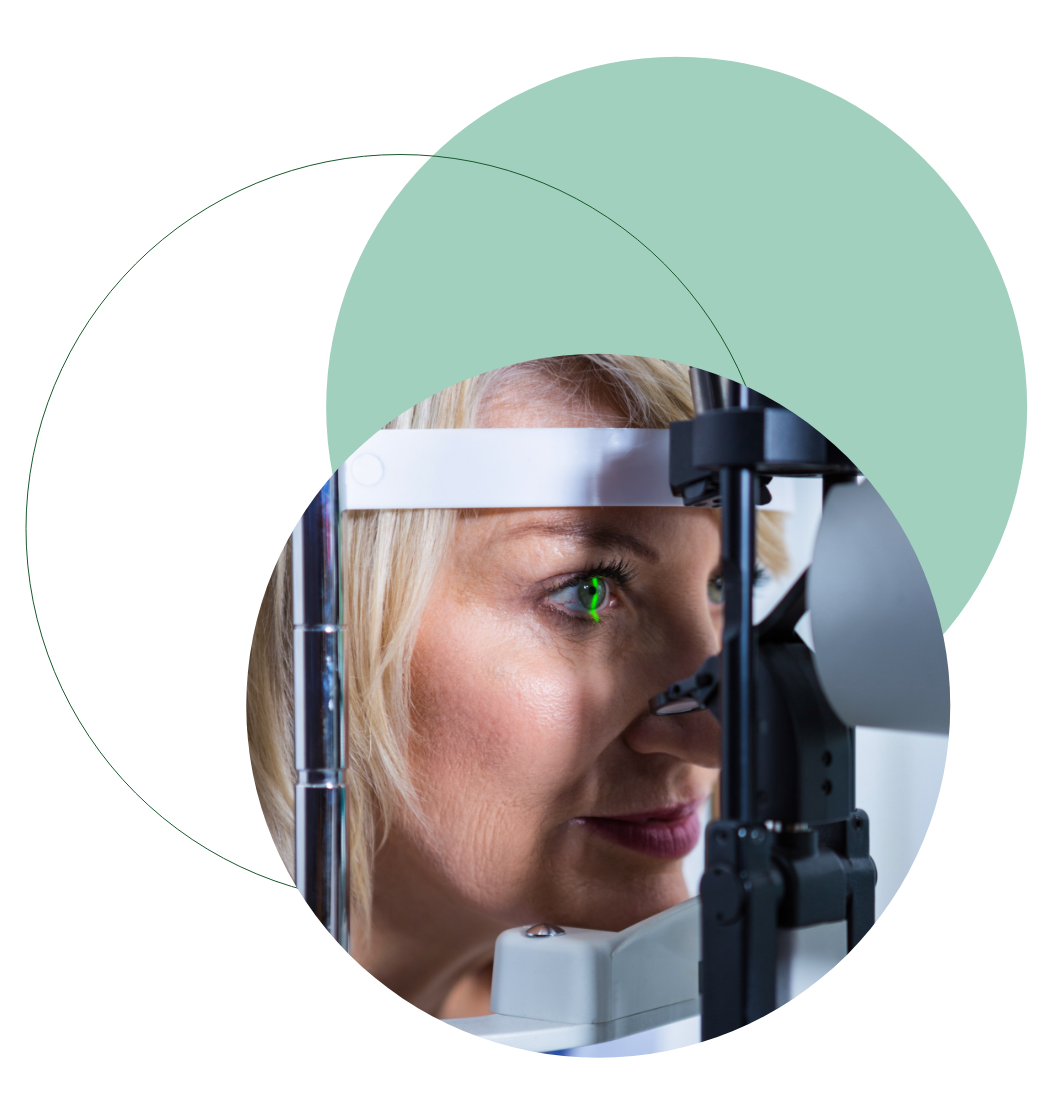
Comprehensive Vision Testing
We start by assessing your overall visual clarity to determine if diabetes has impacted your vision. Diabetes can cause blurred vision or difficulty focusing, which may be early signs of diabetic-related eye issues. This test helps us understand if your prescription for glasses or contacts needs updating.
Retinal Imaging and Dilation
To get a detailed look at the back of your eye, we use advanced retinal imaging technology. This allows us to take high-resolution pictures of your retina, which is crucial for detecting diabetic retinopathy. Dilation of your pupils helps us get a more comprehensive view of the retina, optic nerve and blood vessels, ensuring we catch any abnormalities early.


Optical Coherence Tomography (OCT)
This non-invasive imaging test is specifically used to create detailed cross-sectional images of the retina. It helps us measure the thickness of your retina and detect any swelling or fluid accumulation—key indicators of diabetic macular edema, which can lead to vision loss if not addressed promptly.
Diabetic Retinopathy Screening
One of the most common complications of diabetes, diabetic retinopathy occurs when high blood sugar damages the blood vessels in your retina. This screening checks for any signs of damage, such as microaneurysms, hemorrhages or abnormal blood vessel growth. Early detection allows for timely treatment, which is critical to preventing further vision loss.
Glaucoma Testing
People with diabetes are at a higher risk of developing glaucoma. We perform a test called tonometry to measure the pressure inside your eyes, as increased pressure can indicate glaucoma. Catching it early enables us to develop a management plan to protect your vision from further damage.
Cataract Evaluation
Diabetes can accelerate the development of cataracts, which cause the lens of the eye to become cloudy, affecting vision. During your diabetic eye exam, we check for early signs of cataracts and monitor their progression, providing treatment options to restore clear vision if necessary.
Visual Field Testing
This test helps us evaluate your peripheral vision, which is often affected by glaucoma and other diabetic-related conditions. By checking for any blind spots or gaps in your side vision, we can detect issues before they start to impact your everyday life.
Fluorescein Angiography (If Necessary)
In cases where more detailed retinal imaging is required, fluorescein angiography may be performed. This test uses a special dye injected into your arm to highlight the blood vessels in your retina, allowing us to detect any leaks or abnormal growths caused by diabetic retinopathy.
Eye Health Education and Diabetes Management
At Focal Point Vision, we believe that knowledge is power when it comes to managing diabetes and your eye health. After your exam, we’ll walk you through the results and discuss how your diabetes may be affecting your eyes. We’ll work together to create a personalized care plan that includes recommendations for controlling blood sugar, maintaining eye health and scheduling follow-up exams.
If you’re managing diabetes, regular eye exams are essential to protect your vision. Schedule your diabetic eye exam at Focal Point Vision today and take proactive steps to ensure your eyes remain healthy and clear for years to come. Let us help you manage your diabetes with comprehensive care and expert guidance tailored to your needs.
For vision plans, we are accepting VSP, EyeMed and Superior Vision. For medical plans, we are accepting BCBS, Aetna, United Healthcare and most major medical carriers, including Medicare and Medicaid.
Copyright 2024 Focal Point Vision | Privacy Policy | Accessibility Policy | Designed & Developed by Southern View Media